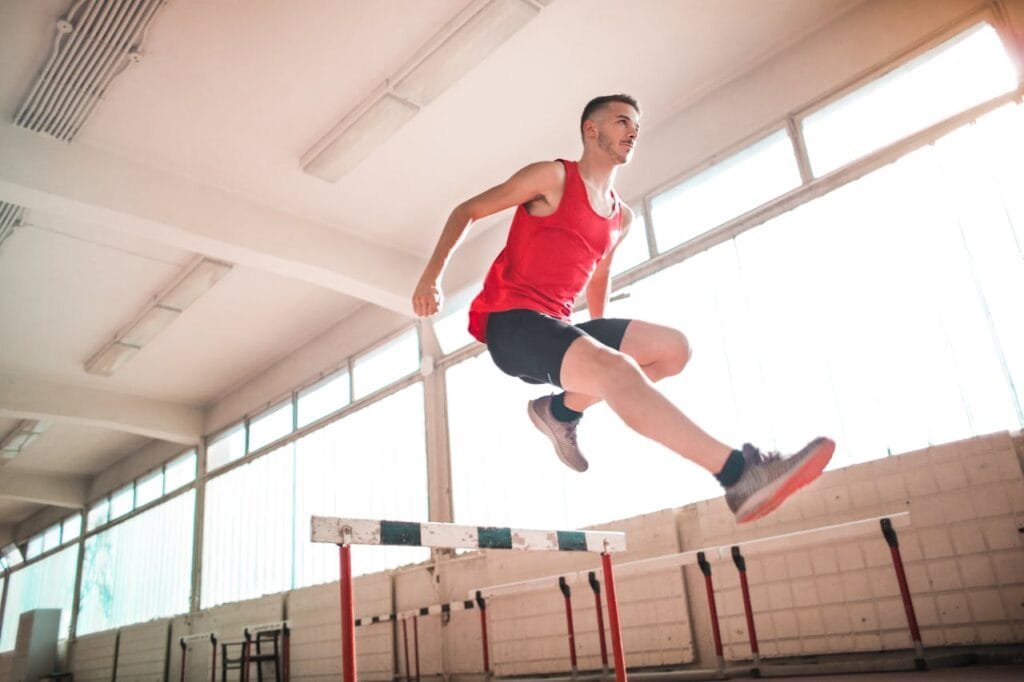Undertaking a fitness journey can be both exhilarating and intimidating. You could be overwhelmed by the countless sports and physical activities that exist, not knowing which way to go. Nonetheless, finding a sport that is right for your fitness goal and lifestyle can change everything. My pursuit of a healthier and more active life has taught me that picking out the correct sport can turn your fitness journey into an exciting expedition.
Getting into the Basics
Before engaging in any physical exercise, it is advisable to consult with a health care professional especially if you are above 40 years old, overweight, have not exercised for some time or suffering from a chronic medical condition. The pre-exercise screening will help evaluate any risks to your health to make certain that the benefits of exercising far outweigh them.

Identifying Your Physical Activity Style
Your approach to physical activity heavily affects your choice. Some people like structured settings while others prefer individual workouts or group activities. For example, I found out what motivates me which helped me choose my performing art.
Health Goal Setting
Various sports offer different advantages and you need to ensure that the one you choose matches your health goals. Walking, running, weight lifting or bicycling are some of the examples of weight-bearing activities that are good for managing weight and promoting strong bones.
There is a need to know what exactly you want to achieve weight loss, muscle strength, cardiovascular fitness or flexibility which will determine how to choose a sport.
Analysis of Different Sporting Activities
Every sport and physical activity comes with its own merits and demerits:
- Walking: It is a low-impact exercise that can be done by most people regardless of their fitness levels. It helps in keeping oneself moderately fit but it does not really strengthen the lower body much unless one started from a state where they were completely de-conditioned.
- Swimming: This not only provides an opportunity for somebody to exercise his/her whole body but it also makes it suitable especially for those with joint as well as muscular problems. However, swimming may not be very effective when someone wants to lose weight or build muscles, unlike land-based exercises.
- Cycling: It is good for heart fitness and leg muscle stamina even though it may not be appropriate in case one has particular knee problems.
- Strength Training: This can be modified to increase muscle size and strength, a good option when it comes to preventing and treating osteoporosis. It takes gradual development plus proper technique for it not to result in injuries.
- Team Sports: They add the advantage of socializing which makes them more fun leading to regular participation. Nevertheless, these games are hazardous towards joint or ligament damage.
Tips for Making the Right Choice
- Enjoyment is key: Select something you like doing to ensure a lasting commitment.
- Follow your lifestyle: Your choice must perfectly fall into your everyday life, taking into account finance, access and personal preferences.
- Be honest with yourself about your level of fitness: Start with an activity that corresponds to the state of your current health and physical condition in order to avoid injuries and maintain regular involvement.
Where to Seek Help
If you don’t know where to start or even how to choose the right sport for your exercise needs it might be a good idea to visit an expert who can help like a physiotherapist, an exercise physiologist or a qualified fitness trainer. They can give suggestions based on your personal goals, preferences, health, any limitations and so on.
How Personal Motivation Works?
Knowing what appeals to us most, setting our own targets and evaluating extrinsic benefits such as social connections, and mental well-being among others become crucial in making the right choice sports-wise.
Assessing Physical Aptitude
Essential issues to consider include identifying your natural talents, assessing the physicality of various games and their injury potential, as well as recognizing your personal strengths and limitations and willingness to learn the appropriate skills.
Considering Lifestyle and Commitment
Evaluate how much time you will need for training and competitions on a regular basis, take into account job, education, and family responsibilities and check if there are any facilities for certain kinds of sports in the neighbourhood. Besides that, consider sports that may be suitable for different stages of life without interfering with daily habits.
Exploring Diverse Sporting Options
There are also some other non-traditional sporting activities that have gained popularity apart from such conventional pastimes as soccer, basketball or tennis. Think about whether you enjoy being outside or prefer indoor activities that are carried out in controlled conditions; also remember about coastal weather when selecting a sport.
Navigating Personal Preferences
Decide whether you like individual or team sports activities; competitive or leisurely ones; numerous or single ones. As an example, I love to participate in group games that emphasize camaraderie toward common goals.
Finding Your Passion and Purpose
To grasp the atmosphere of different sports and identify preferred ones, meet up with trainers or mentors on prospective disciplines and also try out new sports even those that may seem odd at first.
Also Read: How to Stay Motivated for Your Fitness Goals?
Conclusion
The decision about the appropriate sport is a profound search for passion, purpose and self-discovery. It’s not just about the physical activeness but an opportunity for growth, resilience and fulfilment. The best sport for me has been one that I have consistently participated in and enjoyed. Therefore, let your athletic journey unravel driven by your individual zeal as well as the excitement of finding a perfect sporting escapade.